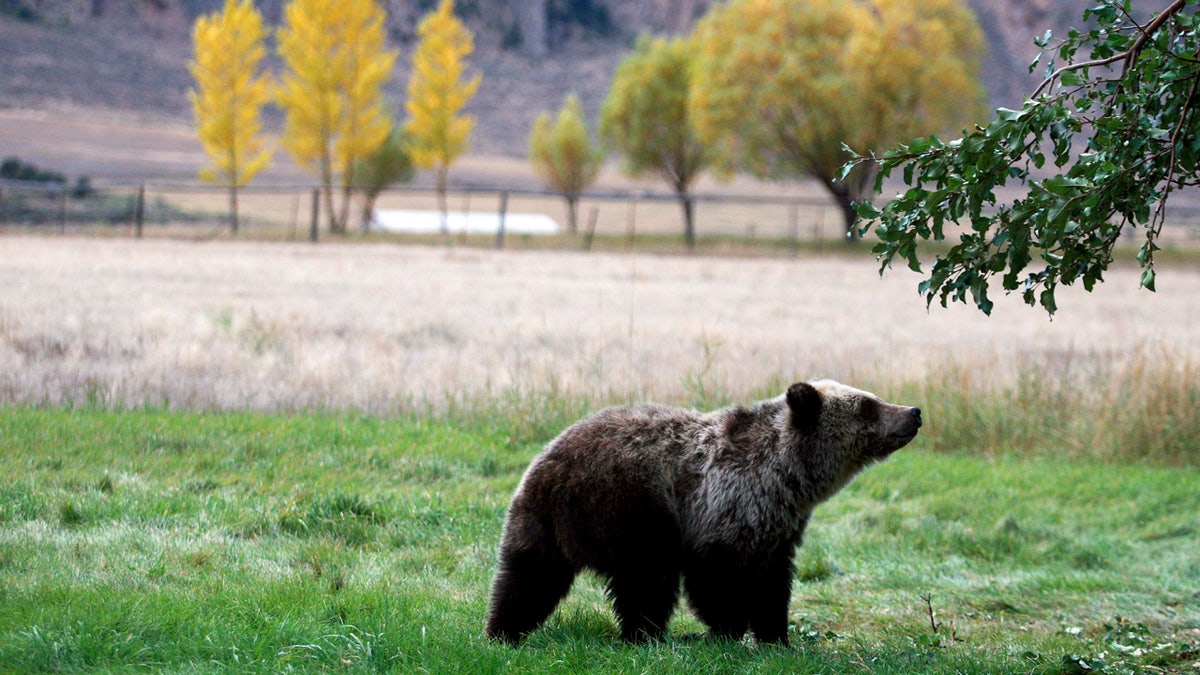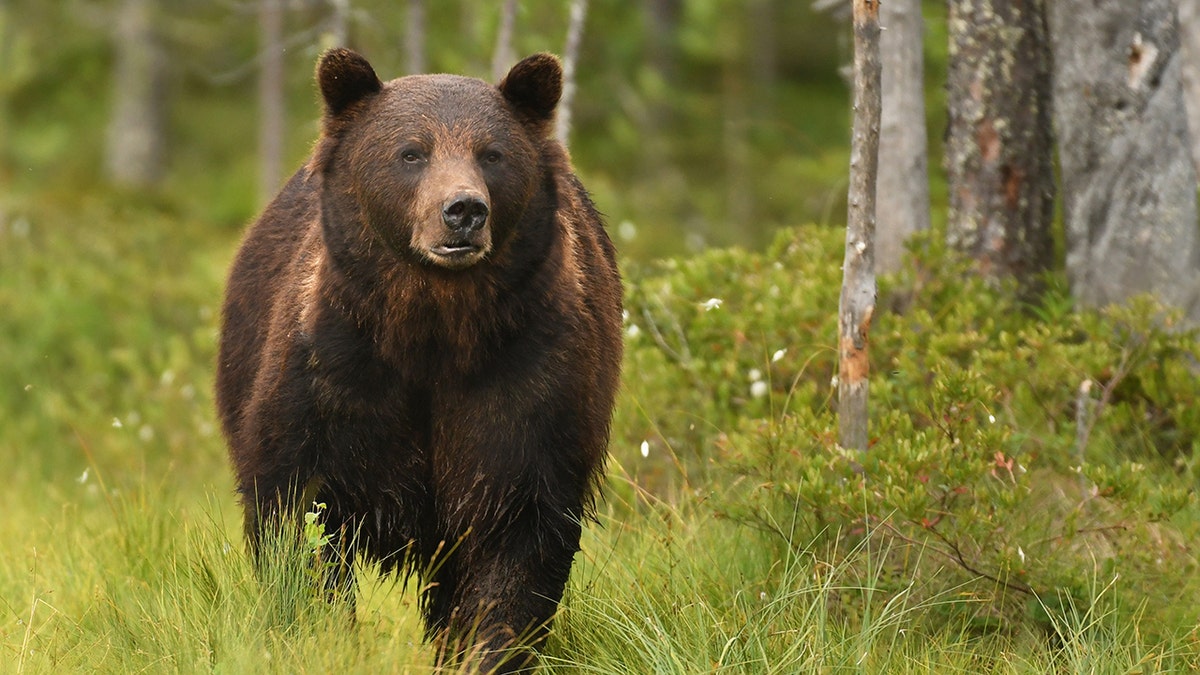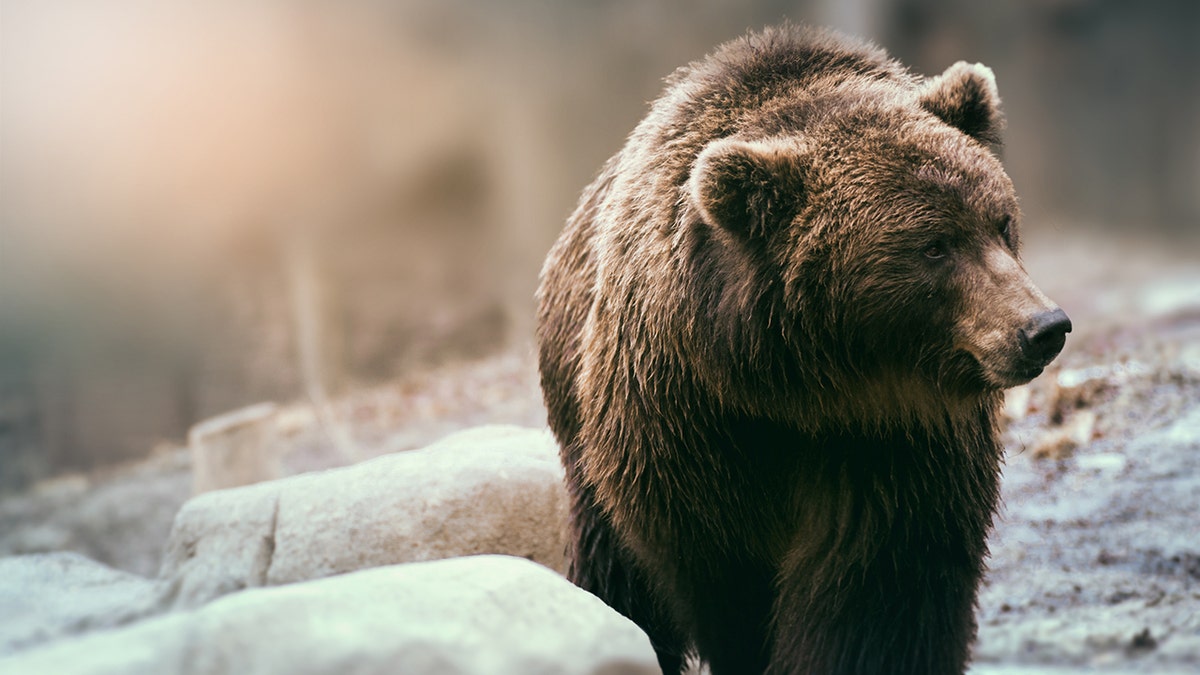
Bear hunts in Idaho and Wyoming were scheduled to begin on Sept. 1. (Alan Rogers/The Casper Star-Tribune via AP)
A federal judge temporarily blocked the start of the first grizzly bear hunts in the continental United States in 44 years Thursday to consider whether the government was wrong to lift federal protections on the animals.
U.S. District Judge Dana Christensen's order will remain in effect for 14 days. Idaho and Wyoming were scheduled to open their grizzly hunting seasons on Saturday.
The ruling was a victory for environmental advocates and Native American tribes who had argued against the U.S. Fish and Wildlife Service's 2017 decision to lift protections for 700 grizzly bears in and around Yellowstone National Park.
The plaintiffs had argued the bears still face threats to their survival and claimed the agency's decision that the grizzlies no longer were a threatened specials was based on faulty science. Federal wildlife officials have said the bears are thriving.

The federal judge's order blocking the hunts will remain in effect for 14 days. (iStock)
Fewer than two dozen bears would be allowed to be killed in the hunts.
The plaintiffs are asking the judge to re-classify the bears as threatened. They also say they don't trust that the three states that have taken over bear management will ensure the bears' survival.
Wyoming Gov. Matt Mead was willing to "make adjustments" to the hunting season, said Erik Petersen, Wyoming's senior assistant attorney general. He wants the judge to leaves Wyoming, Montana and Idaho in charge of managing the bears — even if he rules that the U.S. Fish and Wildlife Service needs to revise its rule declassifying grizzlies as threatened.
"The likelihood of any significant harm to the population is essentially nil," Petersen said.
Among their arguments in court, attorneys for the advocacy groups questioned how other threatened grizzly populations in the Lower 48 states would fare if the Yellowstone bears' status changed. They also said the federal wildlife agency ignored recent spikes in overall bear deaths that, when hunting is added to the mix, could cause an unanticipated population decline.
Department of Justice attorneys said the Fish and Wildlife Service considered all the plaintiffs' arguments and proceeded with lifting protections because there is no threat of extinction to the bears now or in the foreseeable future.

About 700 grizzlies living in and around Yellowstone National Park lost their protected status last year. (iStock)
"They have a lot of speculation, (but) they have very little facts," said attorney Michael Eitel.
Petersen and attorneys representing Montana and Idaho said the people most affected will be the farmers and ranchers who live in grizzly territory and have increasing conflicts with bears attacking livestock. Those people have been cooperative with conservation efforts, but that attitude may change if federal protections are restored, they said.
The population of grizzlies living in Yellowstone was classified as a threatened species in 1975, when its number had fallen to 136. The Fish and Wildlife Service initially declared a successful recovery for the Yellowstone population in 2007, but a federal judge ordered protections to remain in place while wildlife officials studied whether the decline of a major food source, whitebark pine seeds, could threaten the bears' survival.
In 2017, the federal agency concluded that it had addressed all threats, and ruled that the grizzlies no longer were a threatened species needing restrictive federal protections.
That prompted six lawsuits challenging the agency's decision. Those lawsuits have been consolidated into one case that Christensen heard on Thursday.
Idaho's hunting quota is one bear. Wyoming's hunt is in two phases: Sept. 1 opens the season in an outlying area with a quota of 12 bears, and Sept. 15 starts the season in prime grizzly habitat near Yellowstone and Grand Teton national parks. One female or nine males can be killed in those areas.
It would be Wyoming's first grizzly hunt since 1974 and Idaho's first since 1946. Twelve hunters in Wyoming and one in Idaho have been issued licenses out of the thousands who applied.
Montana officials decided not to hold a hunt this year. Bear hunting is not allowed in Yellowstone or Grand Teton.
The Associated Press contributed to this report.
